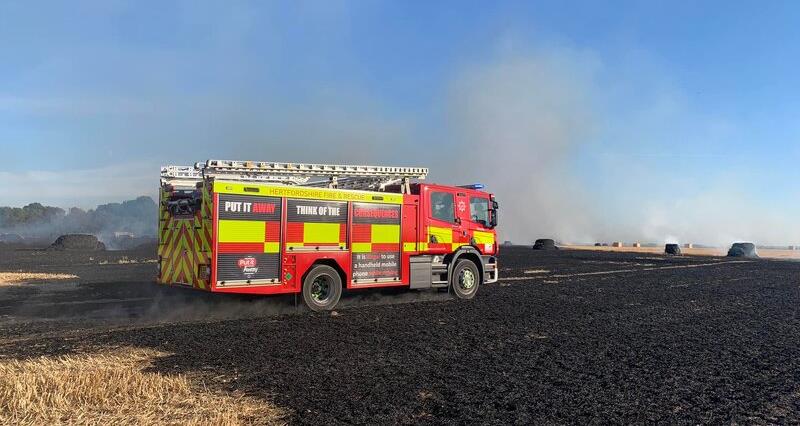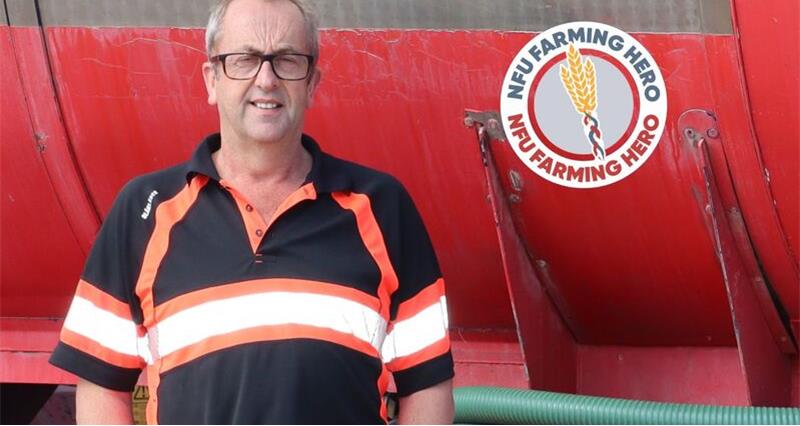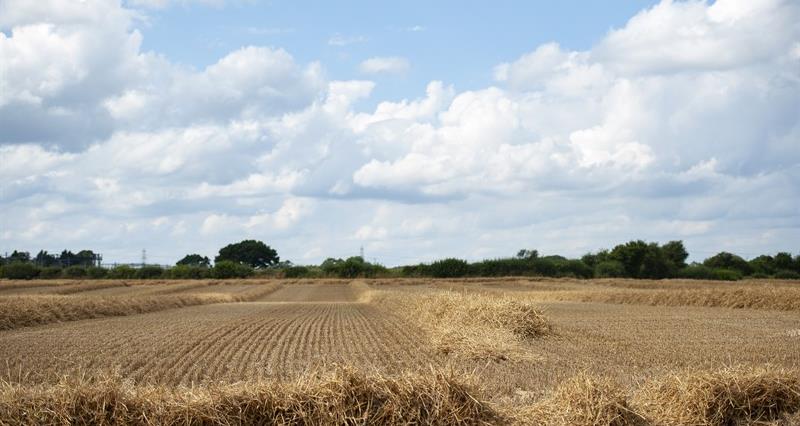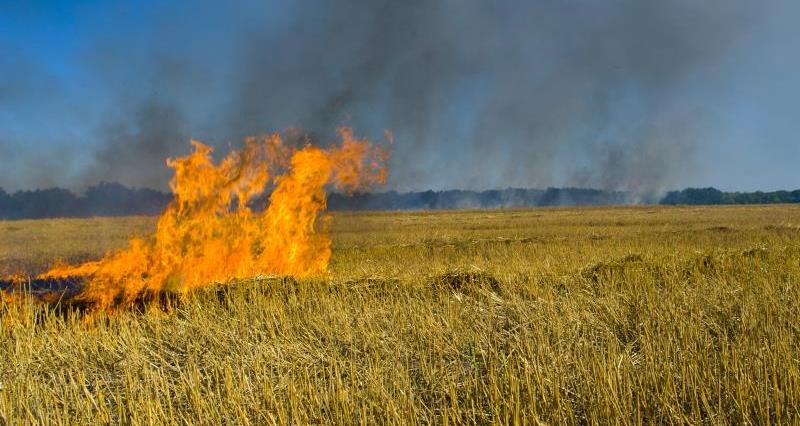The Environment Agency has today declared that the West and East Midlands regions have moved into drought with some river flows in the region at their lowest for June since 1976.
It comes after that temperature extremes are becoming the norm. This has been clear over the past few weeks as the hot and dry weather has created tinderbox conditions on farms across the country.
Not only does this put livestock and crops at risk, but people’s safety, their homes, and those of their neighbours too, as fires can spread quickly and unpredictably.
“Protecting our farmland means protecting our food, our environment and our rural communities.”
NFU Vice-president Rachel Hallos
The has reported more than 500 wildfires in 2025, while data from the NFU Mutual shows the increasing cost of farm fires, reaching £110 million in 2023 – an increase of 37% from 2022.
Commenting on the current weather conditions, NFU Vice-president Rachel Hallos said: “As farmers, we are doing what we can, but this isn’t an issue we can tackle alone. It’s vital that government, fire services and local authorities work with us on prevention, education and response, and for everyone enjoying the countryside this summer to be fire-aware so these shared spaces remain safe for all.
“Protecting our farmland means protecting our food, our environment and our rural communities.”
NFU asks
Farm fires can start in a multitude of different ways, from combine harvesters overheating to disposable barbecues being left in fields. As well as farmers and growers doing what they can to prevent and manage fires, the NFU is asking:
- Government to introduce legislation requiring manufacturers to ensure combine harvesters are equipped with fire suppression mechanisms at the point of sale.
- Local authorities to start issuing PSPOs (public space protection orders) on activities that risk wildfires, such as lighting barbeques and setting off sky lanterns.
- Government to avoid changes in land management policies – particularly in the uplands – which could actually increase wildfire risk in dry conditions. The government has recently consulted on the burning of heather in areas of deep peat. The proposals would make it more difficult to carry out controlled burning of heather in specific upland areas over the winter which is needed to manage vegetation and reduce the risk of moorland fires in dry conditions.
- All fire services to invest in a newly developed adapter to enable fire engines to access on-farm water bowsers and tanks.
‘I dread to think how bad it would've been’
A Lincolnshire farmer was named NFU Community Farming Hero for the East Midlands in 2022 for playing a vital role in delivering a farm fire training programme and developing an adapter that enables firefighter access to on-farm water bowsers helping to save lives, property, livestock and crops.
This adapter is being used in counties such as Lincolnshire and Norfolk, but in most other counties, fire engine fittings are still not compatible with rural water storage systems, making a farm fire outbreak harder to manage.
Lincolnshire arable farmers and NFU members Andrew Ward and Rhonda Thompson have first-hand experience of the importance of these adapters when part of their farm went up in flames over the weekend.
Rhonda said: “It was awful to get the call from a neighbour that our poultry manure heap was on fire, which is surrounded by thousands of acres of wheat – both our own and neighbouring farmers’.
“Every minute the fire was unattended added to the risk of it breaking over into the crop, where it would’ve spread quickly to neighbouring farms and been much harder to contain. Two fire engines arrived quickly from Nottinghamshire and Lincolnshire and, fortunately, the Lincolnshire fire engine was carrying the adapter.
“I dread to think how bad it would’ve been if the firefighters didn’t have access to our on-farm water stores and neighbours’ water bowsers and tankers. Sadly, that’s the situation facing most farms across the country without this adapter.”
‘The solutions are there’
“Farmers are ingenious people,” NFU Vice-president Rachel Hallos added. “The fact that one of our members worked with his local fire service to develop an adapter specifically for rural areas, then managed to secure funding for all 48 fire engines in Lincolnshire to be equipped with it, shows what can be achieved when we work together and put our minds to it.
“These adapters have been instrumental in minimising the impact of farm fires on livelihoods, and I believe it should be a non-negotiable for all fire engines across the country to invest in. They aren’t expensive, yet the cost of a farm fire can be devastating.
“There are solutions out there, and what we’re asking for today will help tackle some of the key causes and risks of wildfires.”



